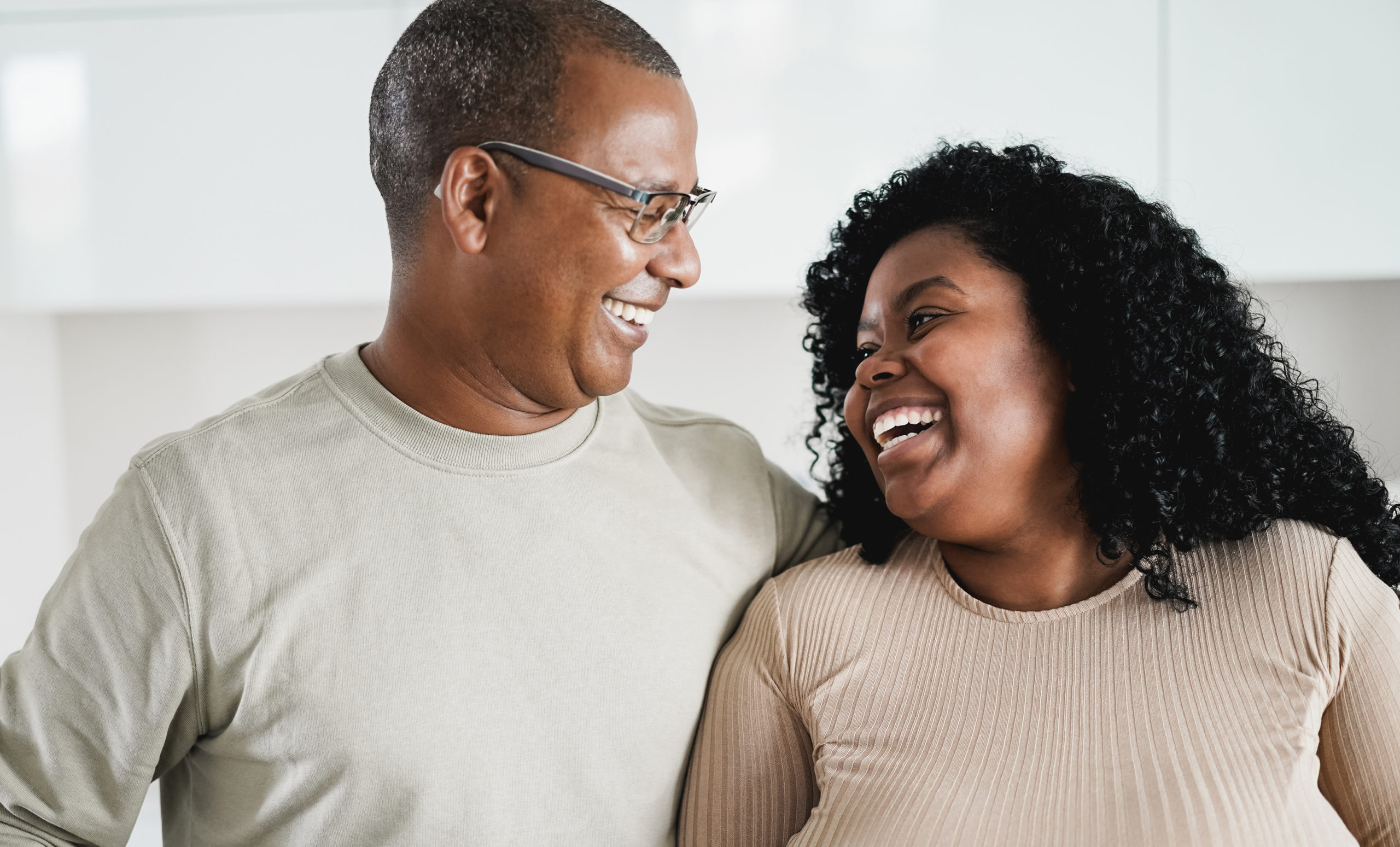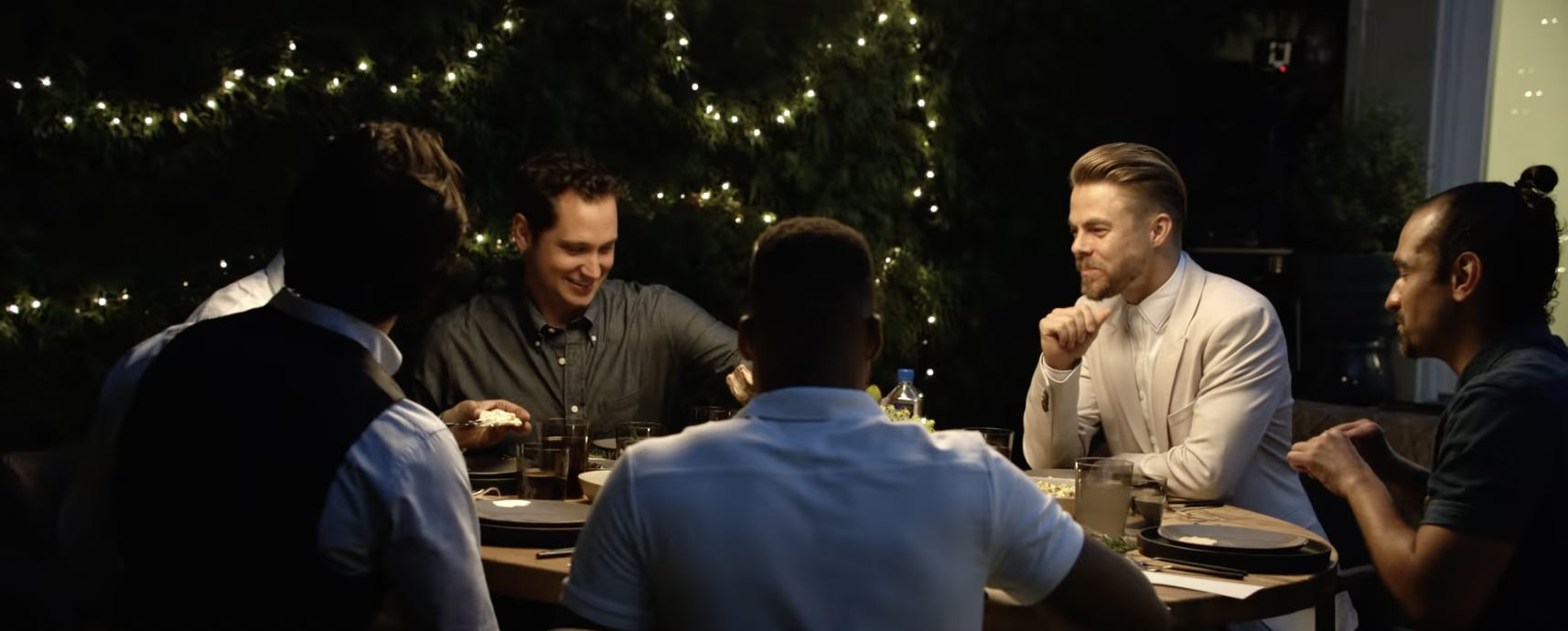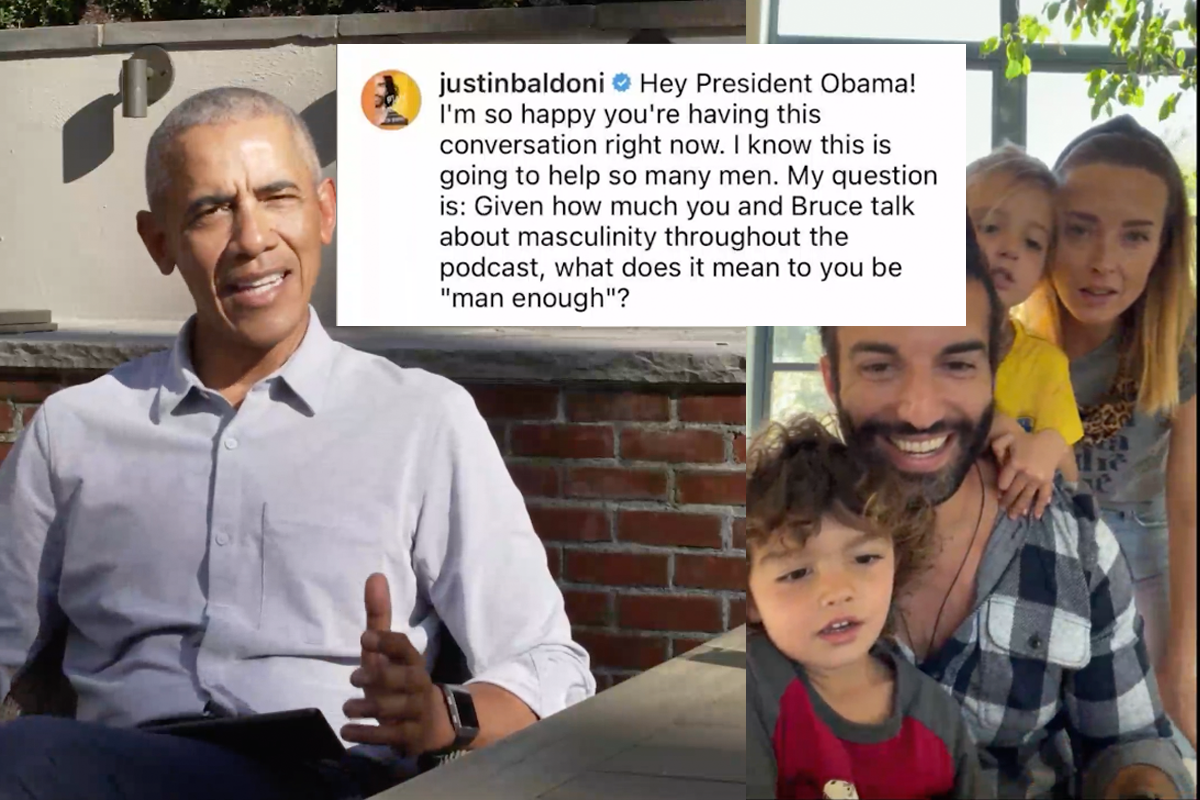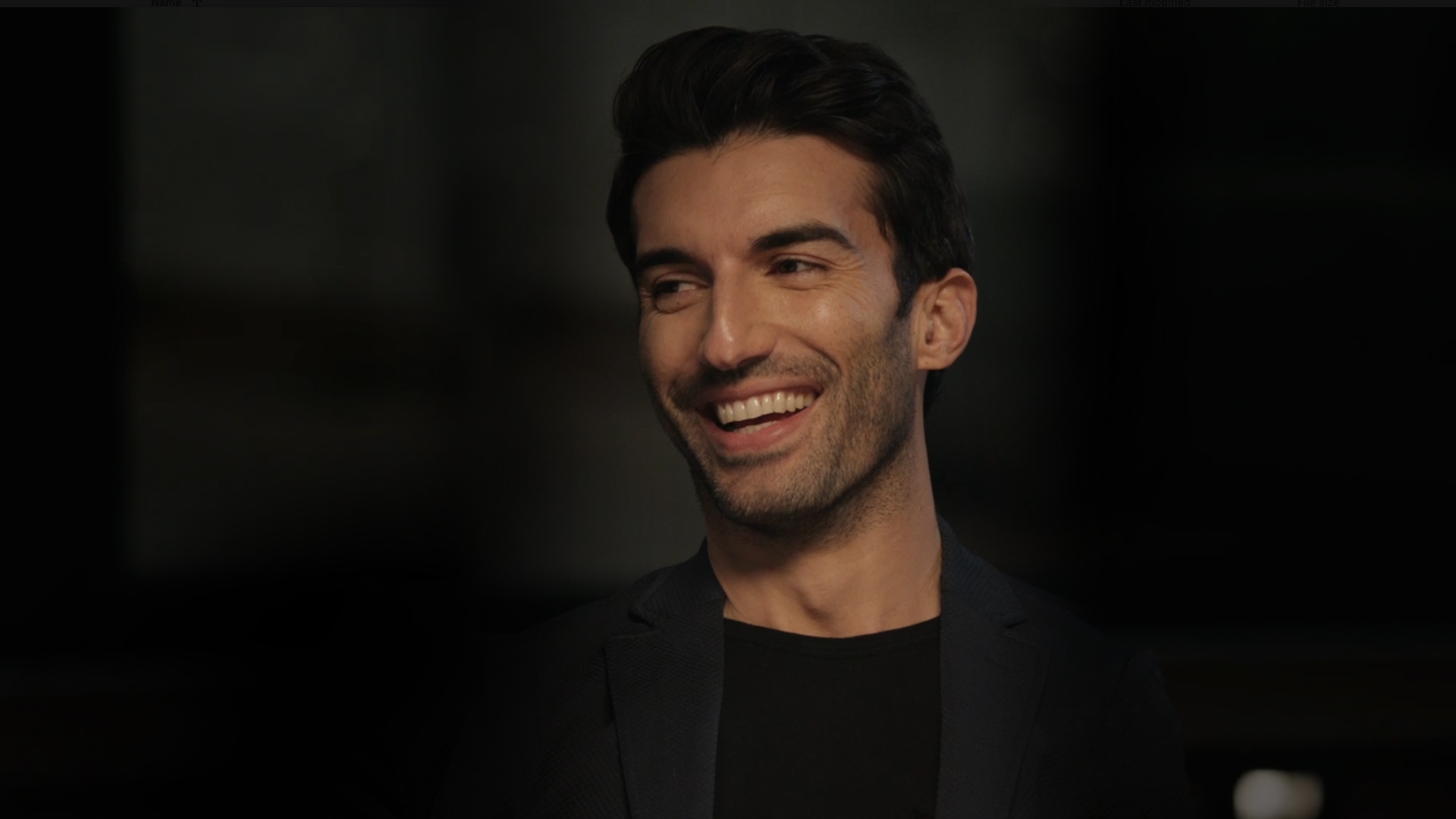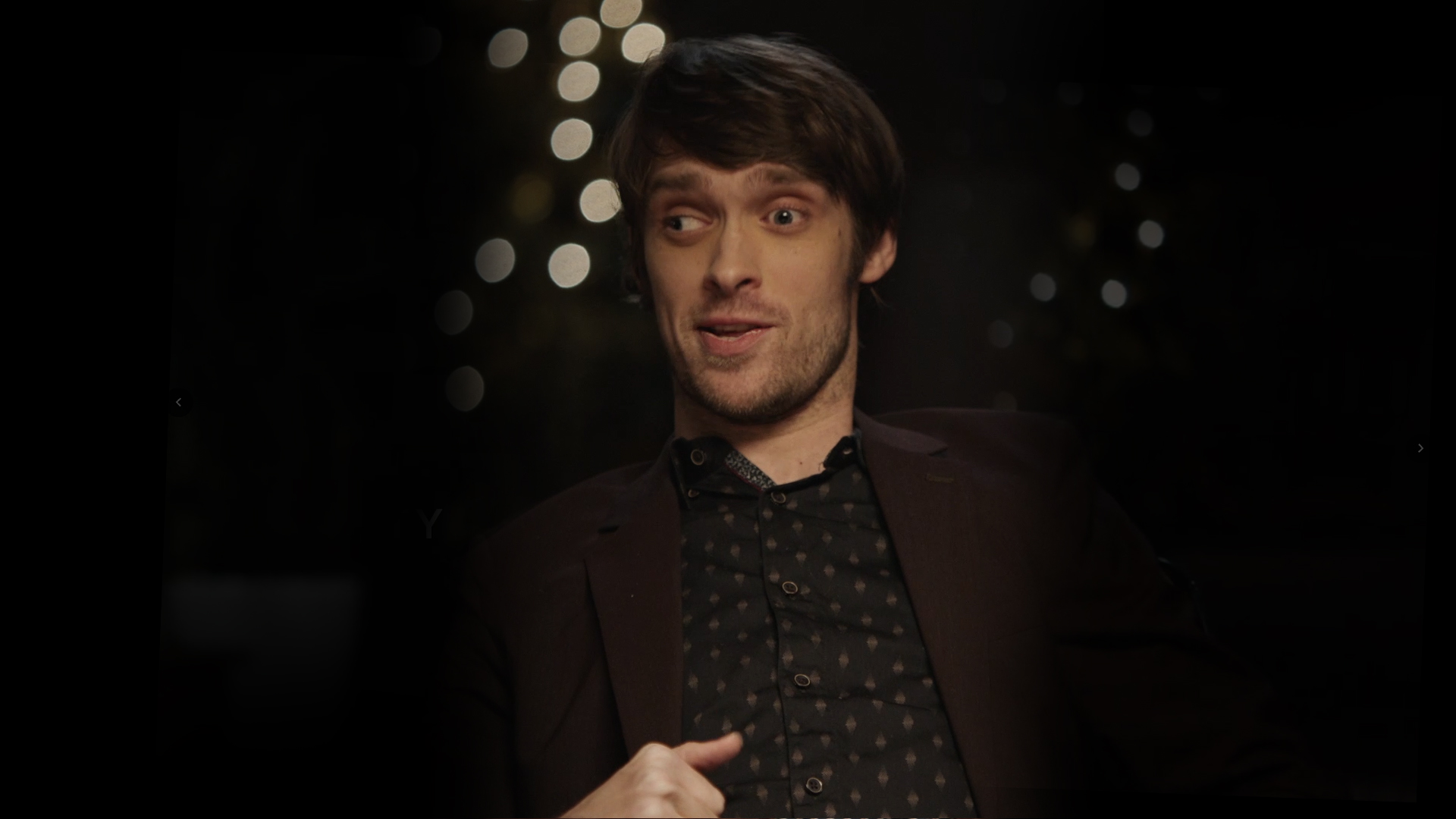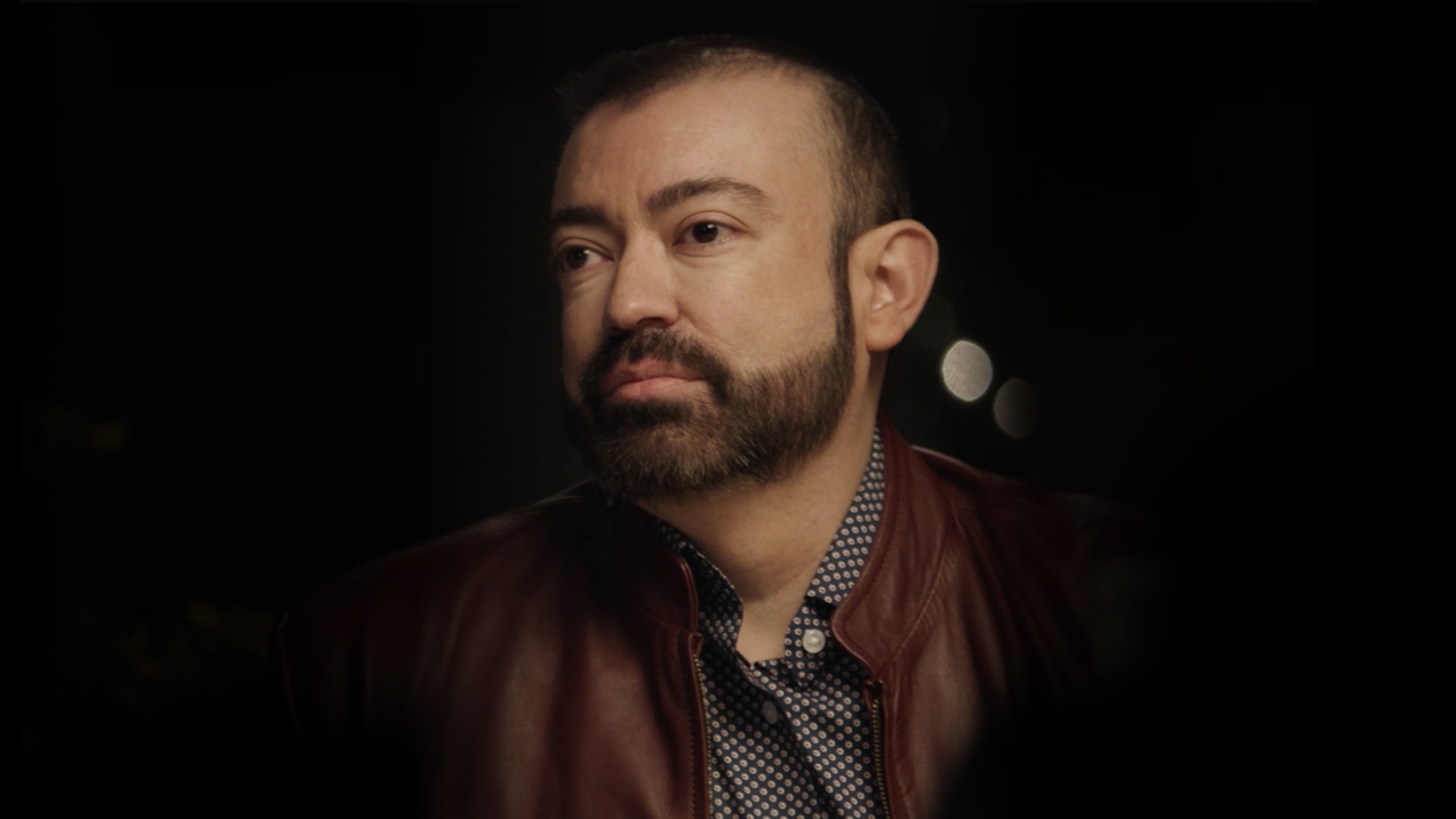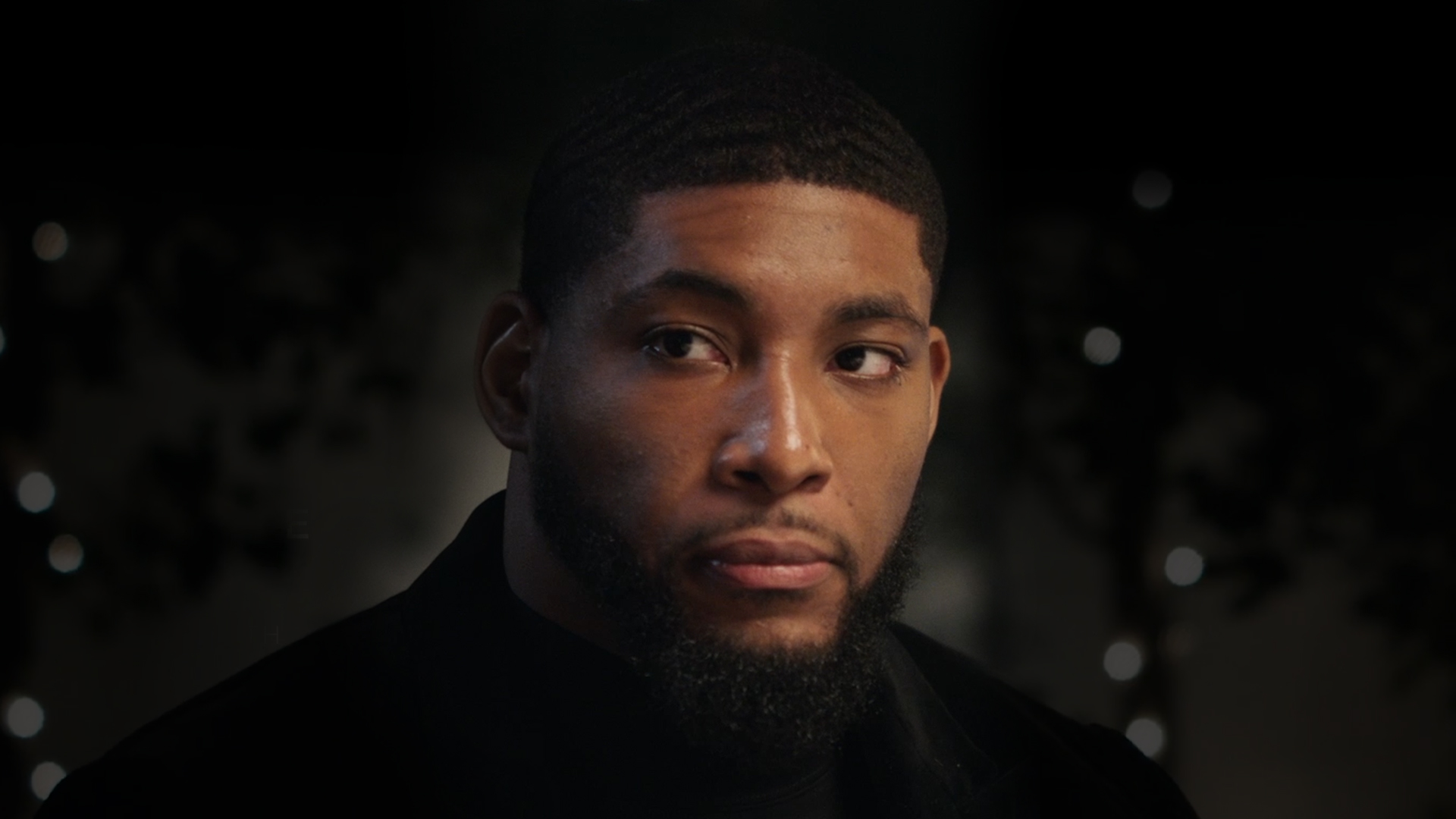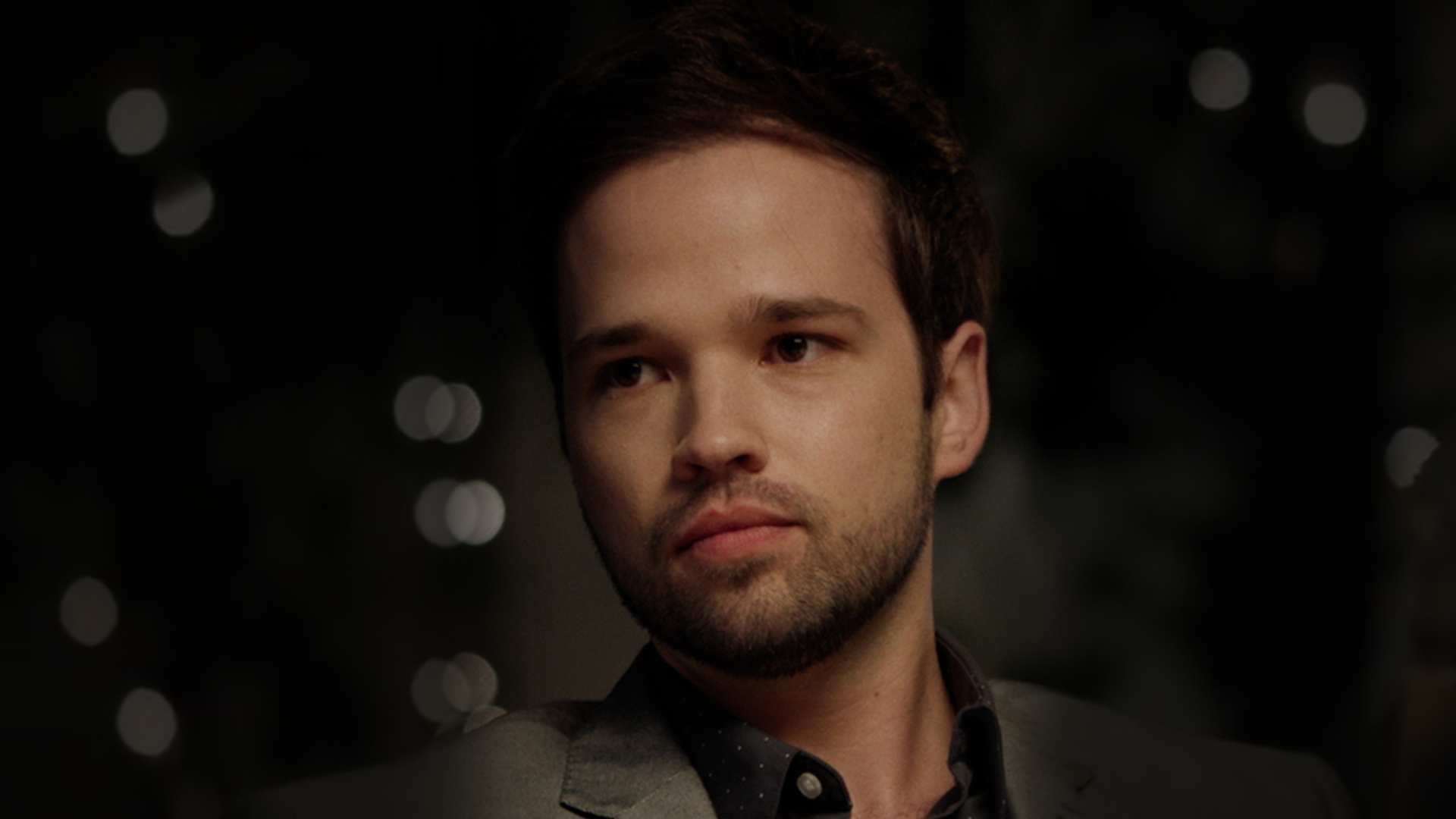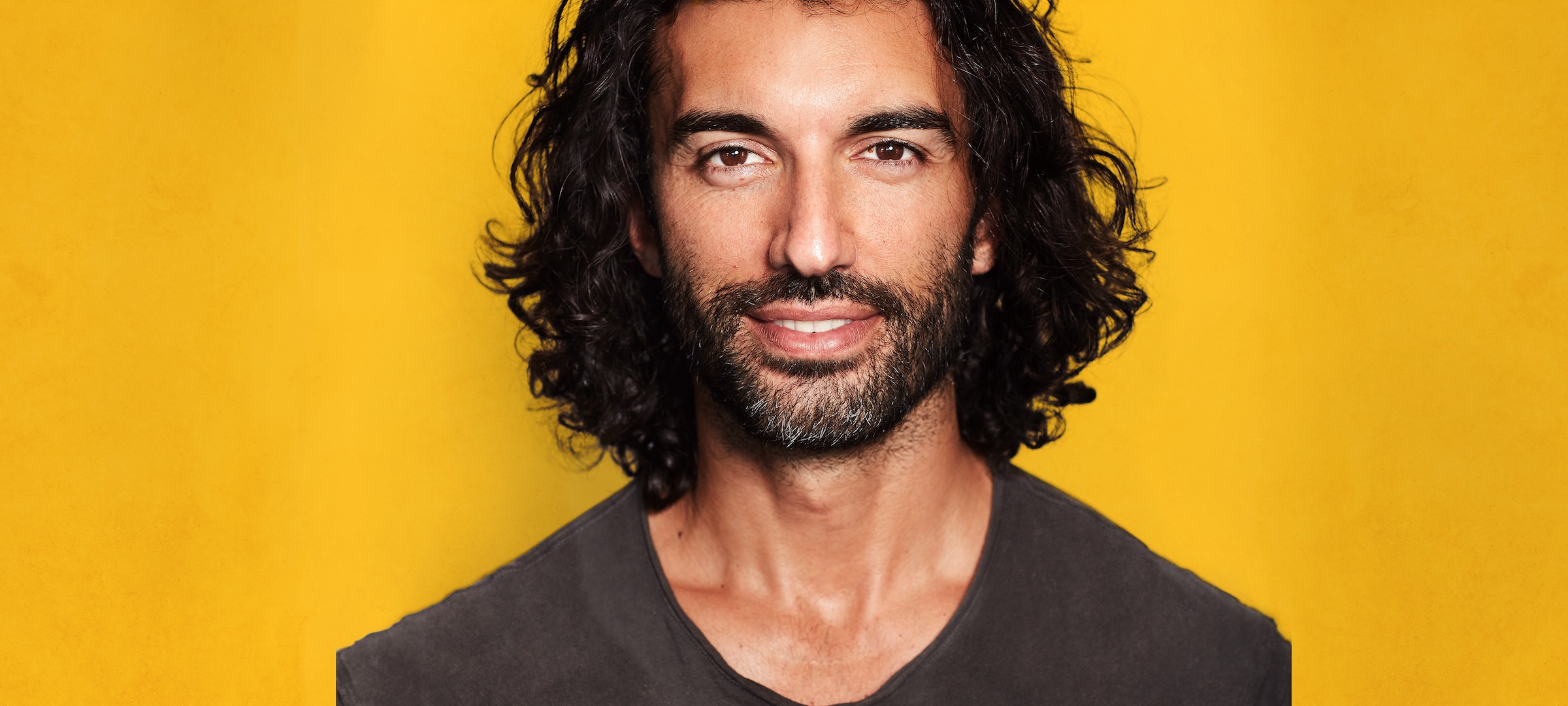Jason Rogers is an Olympic Medalist, LA-based writer, and the creator of The Mandate Letter, a popular newsletter about modern masculinity.
Continue readingWhat it means to be “Dad Enough”
Three voices in the fatherhood community reflect on the challenges of being a modern dad.
Continue readingThe Road to Man Enough: A Movement to Undefine Masculinity
Every road has its potholes, its twists and turns, and every journey has its feelings of elation and its moments of hopelessness. The road to building Man Enough has been this type of dynamic journey, a movement founded on the belief that by undefining traditional roles and traits of masculinity, men will be able to realize their potential as humans and their capacity for connection.
Continue readingBarack Obama Shares Powerful Message on What ‘Man Enough’ Means to Him
One half of the Renegades: Born in the USA podcast, President Barack Obama has joined the Man Enough movement to discuss what it means to him to be “man enough!”And while not all of us may love the Obama years in the past, most of us can agree on his response about what it means to be a man and a father today.
His “Renegades” podcast with rock ‘n roll legend, Bruce Springsteen, tackles many of the issues related to masculinity and fatherhood in our culture, which is why it felt fitting to ask the former President for a message on being a man and a father today. He even positioned a pint of beer in the video to make it extra relatable!
As men who have experienced troubled or nonexistent relationships with their fathers, the topic of masculinity and the “trick bag” of modern manhood is inevitably at the forefront of their podcast conversations. Naturally, the President had keen thoughts on the journey, responsibility and sacrifices of being a good man and a good father amidst all the stereotypes that come with being a “real man.”
Watch President Obama’s response to Justin Baldoni’s question on what being “man enough” means to him below, then share with us what it means to you on our social!
View this post on Instagram
Preorder Justin Baldoni’s debut book, Man Enough: Undefining My Masculinity here.
Join us on Man Enough Facebook and Twitter.
Cover image: The Washington Post (Getty Images)
Man Enough to Care: A Care For All
“Our big vision is Universal Family Care: one fund that we all contribute to and that we all benefit from, that helps us pay for childcare, eldercare, and paid family leave.” -Ai-jen Poo, Director Caring Across Generations
In a country with more than 330 million people, America still manages to be a country without universal long-term care within its healthcare system. It’s quite an achievement, but not a good one.
Caregiving may be the love that comes full circle, but it comes at a steep price. All of us will inevitably need care at a point in our lives, and not all of us can afford it. Average nursing home costs are roughly $90,000 per year.
COVID, while horrible for our health, has managed to shine a light on some of the many inadequacies that surround our healthcare system. Aside from many not having it or being able to afford it, coverage is crap for people who barely can pay the premiums. And Black communities and people of color are at higher risk of illness with a lower risk of being cared for. Look at the disparities during this pandemic, it’s an absolute atrocity. All of that has to change, and soon.
Caring Across Generations is pushing for that “big vision” with systemic change called Universal Family Care, the idea that we all have a fund we contribute to that eventually we can draw from, whether it’s for a disability, child care, elder care and paid family leave. This conversation, Man Enough to Care, is the first step, along with the conversations happening alongside it at your dinner tables, at your hospitals and nursing homes, even as we say goodbye to people who could have been saved, had it been for better healthcare.
Additionally, we must increase the visibility of our healthcare workforce, especially now with all the frontline essential workers who put their lives at risk every day to help countless strangers through this pandemic. And when that’s over they’ll return to a regular life of just saving lives and caring for several people anyway. That’s not just an essential worker; that’s a miracle-worker!
As National Caregivers Day approaches on Friday, Feb. 19, we think about all those who have cared for us and will care for us, along with those we care for. Our fathers and mothers, our sisters and brother, sons and daughters, grandparents, friends, and strangers. It is through caring that it becomes abundantly clear, we are all one, and together we can make it better.
The woman who owns my house is also a nurse in San Bernardino, California. She’s lost more than 20 patients, but she refuses to let these people die alone. That is an every-day saint walking amongst us, so it’s no surprise we don’t bother her when there’s a leak in the john. These people have their own lives and they spend most of theirs looking after other people, despite having three kids of her own!
It’s true that when one part of the body is sick, we nurture it back to health, just as when one of us is sick, another must step up to help heal that person. It may be thankless, and it may be unrequited, but it’s the care that we need. Let us highlight those undervalued roles in our lives and celebrate the people who have, currently or will care for us, even if just for a day.
As you look down at the diapers you’re changing every day for your kids — we hope you make it out clean! — keep in mind they may have to return the favor for you one awkward day. Now that is the truly the love that comes full circle!
The conversation is happening now. Join us to make these policies and systemic solutions to become real.
Join Justin Baldoni, Ai-jen Poo of Caring Across Generations and our wonderful guests for a final wrap-up Instagram live conversation on National Caregivers Day, which is Friday, Feb. 19 at noon PST/3pm EST. Visit @JustinBaldoni on Instagram and get in the game!
“It’s game time. Whatever obstacle you’re facing, it’s time to get off the sidelines and get in the game.” -Devon Still
Be man enough to care. Get in the game. Before it’s too late.
WATCH EPISODE 5: CARE FOR ALL HERE.
Who is a male caregiver in your life? Are you one of them? How do we celebrate them, how do we honor them? We share their experiences.
Share their story. Share your story. Courage is contagious.
For more information about Caring Across Generations, visit their website and follow them on social.
Embracing Vulnerability
“As somebody who [has experience with] a disability, I never got the focus of masculine energy…because I needed help my entire life and depended on other people to do things for me. I felt like a burden on my family.” – Zach Anner
Vulnerability. It’s that six-syllable word (confirm quietly on my fingers) that makes most men a bit squeamish. To embrace vulnerability, for a lot of us, means admitting you’re weak when you could just pretend to be strong and continue fitting in, even if disingenuously. It means expressing emotions that may invite your peers to bully you back. It’s taking the road less traveled, which at first feels good but inevitably will throw you some unexpected curves and may send you into the bushes while the rest of mankind parades by pointing and laughing.
Sound about right? Yeah, we’re definitely getting warmer.
Not all of us have the luxury of taking care of ourselves. Even now with all this technology at our fingertips, there are plenty of grown men out there who still require assistance or have needed it for a generous portion at some point in their lives.
Take comedian and author, Zach Anner, for example. Easily one of the funniest human beings on the planet, Zach required a lot of care growing up due to his cerebral palsy. Although Zach has no interest in being the poster-boy for all special-needs people, we invited him to share his experience as someone who embraced the fact that he needed help.
“There’s this thing you learn…I’m taking so much from other people. What can I do to level the playing field? Which is faulty thinking, but it’s hard to get past that,” Zach said.
Zach not only accepts the importance of vulnerability and asking for help, but he’s also always willing and able to find the comedy in these moments, completely fearless about making himself the butt of any joke. Needing and receiving care isn’t some obstacle to overcome; it’s a part of his life, and you can tell he wouldn’t hesitate to be the first to buy everyone coffee to return the favor.
Personally, I can relate. My oldest friend in this world also has cerebral palsy. When we were kids playing Kick the Can in the yard or roller hockey in the street — yes, we made him the goalie, sadly — he would fall down, and every time I went to help him up, he would refuse. He wanted to do it on his own. He wanted to be like everyone else and fit in, even if somewhat disingenuously. There’s nothing wrong with wanting that, but the ability to say “I need help, can someone help me?” is such an incredible step for any man (or anyone, for that matter) to take. That’s what it means, at least to me, to be man enough.
“As men, we’re taught to solve and to be intellectual and make sense of things. And so when a health situation surfaces that actually requires an emotional approach, not a rational approach, we feel like failures.” – Robert Espinoza
Not too dissimilarly, Devon Still’s daughter felt like all the arguments and sacrifices that followed her cancer diagnosis were her fault. Luckily, Devon understands the importance of communicating and empathizing in these situations.
The guilt of altering another person or group of people’s lifestyles is another burden on top of an illness or disability that takes its own toll, not just physically but emotionally exhaustive, too. With the current lack of support for the caring community, along with a substandard healthcare system that doesn’t benefit many of the people who need it most, that additional weight often falls on family and close friends — sometimes perfect strangers — to address those ancillary issues that arise during the caring process.
Thinking that problems can be solved intellectually, or even at all, is its own issue, one that requires us to better process emotionally and understand it, rather than how we can fix it. As caregivers, especially men who care for others, we have to fight that urge we have to fix everything, rather we need to be present and understand the situation and how we can help in our own way.
I know, it sounds insane to not just fix it, but not everything has a solution, no matter how big your toolbox is.
Being a shoulder for someone, providing comfort and staying present with people who suffer is sometimes exactly what they need. To be vulnerable, to accept care when we need it and to give it when we see someone who needs us. That’s why we’re here: to build community, to start conversations, to begin the changes we need for our loved ones and, most likely, for ourselves in the future.
The system that is in place now, one which is meant to support these people and those they care for, really needs to take notice. Maybe then that guilt and extra strain won’t as easily follow us around.
Who in your life embraces vulnerability? Are any of them giving or receiving care? How do we celebrate them, how do we recognize them? We share their stories.
WATCH MAN ENOUGH TO CARE, EPISODE 4: EMBRACING VULNERABILITY HERE.
Share their story. Share your story. Courage is contagious.
For more information about Caring Across Generations, visit their website and follow them on social.
The Cost of Care
“We are one of the only countries in the world that doesn’t offer paid family & medical leave to those who need it.” – Robert Espinoza
What would you give to help someone you love who is struggling or sick? What wouldn’t you give? That’s the likely perspective of many Americans who have little choice but to go head-first deep into debt to try and save a loved one. There is no guarantee in such a pursuit, other than the cost of care that comes later. With roughly 260 percent higher bankruptcy rates for families battling cancer, it’s becoming clear that not only is the cost of caring oftentimes insurmountable, but it’s also more essential than ever that we mend a broken system, too.
Cancer is, simply put, a cancer. It will likely creep its way into our lives one way or another — bleak but true — if it hasn’t already, be it ourselves or someone we hold dear. But that’s just the tip of the iceberg. There are any number of possibilities for poor health in a country with more than 300 million people who are underinsured, if at all, many of whom struggle with heart disease, obesity and certain hereditary afflictions. That’s not even counting mental illness, another phenomenon we are just starting to scratch the surface of.
Think about it: If that many people are affected by major diseases, many incurable and most requiring great deals of maintenance, then why is the system set in place making it so hard for anyone, middle class or making less (i.e. most of America), who is affected?
Families are losing everything to save their everything. -Devon Still, Former NFL star
A perfect (and terrible) example of how broken our system is may be hitting close to home right now for so many Americans. COVID-19 has upended lives, forced families to lose members and do so without proper goodbyes. Without even going into the mental and emotional scarring, consider the costs due to hospitals and pharmacies that are mathematically just not repayable. And yet, many American leaders have told us that COVID was not a serious illness but then were immediately given the best possible treatment for COVID after irresponsibly contracting the disease and simultaneously trying to take away what American healthcare we do have. Their treatment, in part, was paid for by the taxes of the people they lied to, and then they leave those same people neck-deep in debt for the exact same affliction. That is the very definition of madness.
“People have always worked and have always had families. But we’ve somehow never accounted for the fact that people have to do both at the same time, and put the infrastructure in place to support that.” – Ai-jen Poo, Director of Caring Across Generations
For Former NFL star, Devon Still, he knew when his little girl was diagnosed with cancer, there would have to be a sacrifice made. For him, without hesitation, that meant giving up everything he had achieved to be with her.
Historically, we know countless women have graciously done the same for their families simply by way of childbirth, many of which are not given proper maternity leave or help for their families. But now we’re realizing men, too, fall into this category, roughly 40 percent of caregivers in America, a country with nearly 70 percent of households with kids having both parents working outside of the house. Where would be without caregivers!?
Luckily for Devon and his family, the players’ union helped financially with his daughter’s treatment, and we’re thrilled to report last spring, she hit her 5-year milestone of being cancer-free, a truly fantastic moment! But for so many people, they don’t get to see the amount on medical bills they owe being discounted by insurance and other workplace coverage. That’s with them for life and will forever affect the way they live and spend and care for one another moving forward.
That’s why caregivers are so important. They not only help soften the blow of a major illness, they’re also sacrificing themselves — physically, mentally, emotionally. There can be a lot of happy moments that do come from an experience caring for a loved one, memories we should never forget, but there doesn’t need to be the sour aftertaste of massive debt hanging over anyone once it’s over, for better or worse.
Individual issues require collective action and collective solutions, especially when millions of individuals are affected.
So how do we change the system? We write to our congressmen and women, we vote for people who genuinely want to make a change — state and federal — and we take this awareness and begin having conversations that focus on finding solutions. And we support those who support others.
Who is a male caregiver in your life? Are you one of them? How do we celebrate them, how do we recognize them? We share their stories.
Share their story. Share your story. Courage is contagious.
Join the conversation and take action to create a more caring future here.
For more information about Caring Across Generations, visit their website and follow them on social.
You Are Not Alone
“A lot of people think that I was strong all the time, but I really wasn’t.” – Devon Still
One of man’s most infamous traits to this day has been the ability to suppress the urge to communicate emotions, regardless of how dire the circumstance. Be it fear or joy, excitement or anxiety, life or death, every man has felt the need to celebrate alone or suffer in silence at the greatness of milestones and the lowest of points. While it has surely been a commonality amongst all of humanity at some point, men, specifically, have been raised to stuff it down, man up and hide who they are in order to maintain appearances, show superiority and remain dominant by creating the illusion of strength.
That amount of weight is a boulder that will eventually crush, if not for fellow shoulders to fall on.
In the world of caregiving, men who care for others on their own, men with no community, are some of the most silent of sufferers there are, these giving ghosts that nobody is aware of. This kind of life, strangely enough, only exacerbates the condition and its ensuing emotions. Anxiety is compounded with anxiety about having anxiety when there is no release, fears multiply and thrive when they cannot be released and the silent suffers only suffer more when they feel they have no community with which to share. It can be some of the loneliest and isolating existences ever.
But it doesn’t have to be this way. There are so many men who care for others, approximately 40 percent of the 53 million caregivers in America. So this incredibly lonely and isolating feeling is heavily pervasive in our society, and yet nobody has created or facilitated an outlet for ideas and experiences to be shared, nobody is caring for the caregivers. Therein lies the opportunity for someone, something to speak up and say:
You are not alone.
If men were to be cast as a movie, then these caregivers could be our captains, our saints and our martyrs, except this is no movie at all. These people take on so much of the weight and so much of the sacrifice, and many we don’t hear about until long after the caring is done and the negative aspects and manifested. This is the quiet life of a caregiver, and they not only need our help to be recognized after but during their caregiving. We must learn to act responsibly for our fellow man and our fellow woman, to create a support system for them to share their experiences, reminisce over the joys and cry their hearts out over the pain, simply to lighten their load for a change.
“Until having to become one myself, “caregiver” was just a word to me,” my dad said. My father recently cared for my ailing grandfather for more than a year until his death, staying with him for days, sometimes weeks, at a time so my grandpa could stay in his own home, being surrounded by close family when COVID-19 had locked down nursing homes. He put his own health at risk caring for him, alongside the occasional visiting nurse, putting his marriage and cushy retirement on hold for those final shared moments.
“I never knew how hard it was every single day to care for someone you love, especially for a dying parent. I wouldn’t wish that for anyone,” he told me.
My grandfather weighed 155 pounds at the start of 2019. He died weighing only 89 pounds.
Think of someone you know who takes care of someone else daily. It could be a father or mother, a son or daughter, a neighbor or teacher or anyone who puts someone else’s health ahead of theirs. What do they look like? Think of how much they do for those people, how thankless some of those days may seem, how they do it without question on other days. Think of how lonely, exhausting and sleep-deprived their nights are, how much anxiety and fear may fill their days. Think of the joy they bring to those who are sick, those who are spending their last days on Earth. Think of those people, then think of what it would be like to one be those caregivers, and finally, think of how great it would feel for someone to reach out to you in that moment and simply say:
I know how much you do. I know the weight you carry. I’m here if you need me. You are not alone.
Who is a male caregiver in your life? Are you one of them? How do we celebrate them, how do we recognize them? We share their stories.
Share their story. Share your story. Courage is contagious.
For more information about Caring Across Generations, visit their website and follow them on social.
Love Comes Full Circle
If you really try, can you recall even once being held as a child? What about surprise spit-ups on someone’s favorite shirt? A lot of us just assume these things happened, and likely they did. It’s sort of wild when you stop to think of it. Sure, we remember sick days, getting waited on hand and foot until we felt better, someone distracting us while we got our first flu shot, but there are so many moments we don’t know about, like somebody singing us to sleep, then taking us for an hour-long car ride in the middle of the night on a Tuesday when that didn’t work.
We assume so many things when it comes to the care we’ve received over our lifetime, but whether you remember it or not, it happened. You’ve been cared for so much of your life, and you’ve probably cared for others along the way. We often think of mothers when it comes to diapers, feeding, changing, burping — maybe it was, bless her heart — but that’s not always the case. Nearly 40 percent of the 53 million caregivers today in America are men. They, too, change diapers and spoonfeed others who can’t take care of themselves every day, but that’s how a lot of male caregivers are recognized today: not often enough and sometimes easily forgotten.
When I think of how I got to be 36 years old, I realize it wasn’t on my own. I had a lot of help along the way, oftentimes by two people who never considered themselves caregivers. My “Ma” and “Pops” simply considered it their job as parents. My father worked six days a week, 12-hour days, rarely missing a baseball game and eventually found the time to coach my basketball team himself (probably because he got sick of watching other people screwing it up). My mother gave up her job to raise us, never once did either brother or I hear her complain about it. She simply set everything she’d be building towards — she graduated from a great college and began working for the FBI — to take care of two mini-men she’d never met.
“If I zoom out, I can see that all of these people who are going out in the world doing these amazing things, there’s always an element of caregiving that has to happen…but it’s invisible.”
-Justin Baldoni
We don’t think of ourselves, men especially, as caregivers. If you asked anyone who was, they’d likely say they’re there for the people who need them, just like any mother, daughter, family member or friend would. That’s the inherent beauty of life and social connection, and a lot of why this last year has been especially hard. In a time of social connection crisis, it’s high time we realize we’re all valued members of the caring community. It often goes unnoticed, happening between people who are bonded for life, many whom would gladly do it despite the many hardships and wouldn’t change a thing when it’s over.
For those of us who have raised children to be wonderful human beings, have tied our injured or ailing parents’ shoes after learning it from them, who have sat on the line for hours to make sure they get their COVID-19 vaccine, you are a caregiver. For those of you that have driven to pick up medicine for a neighbor, shoveled their driveway or mowed their lawn, you are a caregiver. For those of you that looked after your little brother or sister when your parents are busy, who made sure they got to school on time, fixed meals when you weren’t even old enough to drive, you are a caregiver. There is no face or name, color and size to this invaluable archetype. We’ve all been there, giving and receiving love, from day one, and we’ll continue in our own way until we’re long gone.
One day, I imagine, I’ll return the favor and set aside my life, my self-absorbed goals and my personal priorities to spend time and share moments, some absolutely gut-wrenching and terrifyingly miserable and hopefully several joyous and unforgettable memories I wouldn’t otherwise had without stepping forward into the role when someone I care for is in need of that care. It may be a favored unreturned or one that gives back ten-fold. But keeping the score when it comes to caring doesn’t matter, it call comes back around one way or another.
That’s the love that comes full circle.
That’s the deal, and hopefully, you give as much as you get, if not more.
Who is a male caregiver in your life? Are you one of them? How do we celebrate them, how do we recognize them? We share their stories.
Share their story. Share your story. Courage is contagious.
View the first episode, Man Enough to Care: A Love That Comes Full Circle here now.
For more information about Caring Across Generations, visit their website and follow them on social.
Justin Baldoni Reveals New Book ‘Undefining’ His Masculinity (Preorder!)
We’re excited to announce that our Co-Founder and Co-Chairman, Justin Baldoni, has written a new book called, Man Enough: Undefining My Masculinity. A bold and transparent personal story, Man Enough’s key message encourages men to unpack the expectations of traditionally defined masculinity, and dive deeper into who they are at their core, while encouraging all of us to be brave enough to believe that who we are, as we are, is enough.
Partnered with Los Angeles Black-owned independent bookshop, Eso Won Books, the book invites us to move beyond the scripts we’ve learned since childhood and the roles we are expected to play. Justin challenges men to be brave enough to be vulnerable, to be strong enough to be sensitive, to be confident enough to listen. Encouraging men to dig deep within themselves, Justin helps us reimagine what it means to be man enough and in the process what it means to be human.

Justin Baldoni is a devoted husband, father of two, and Bahá’í. He is an actor, director, producer, and the co-founder and co-chair of both Wayfarer Studios and the Wayfarer Foundation. Over the last ten years, Justin has been on a journey to explore masculinity and reimagine what it means to be a man—what it means to be a human—in the world today. He has spoken about his journey with masculinity in his wildly popular TED talk, and his digital series “Man Enough”, as well as on college campuses across America.
See the book cover reveal below!
